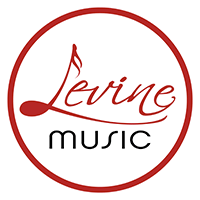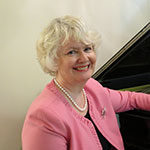Piano
Education
Pamela received her M.M. from the Yale University School of Music, Performer Diploma from Hochschule for Music and Dramatic Art (Vienna, Austria) and her Performer and Teacher Diploma from Sydney Conservatorium of Music (Australia).
Performance and Teaching Experience
An active pianist, Pamela has performed as a soloist, vocal accompanist and ensemble pianist in Austria, Germany, Australia and the United States.
At Levine
Pamela joined the Levine faculty in 1998 where she teaches private piano instruction and piano performance classes. She is currently the senior editor of the Keyboard Skills and Sight Reading books for the Piano Department, co-author of “Let’s Read Music” with Cecilia Cho and Hyeweon Gessner and is the former Chair of the Piano Department.
“It is particularly enjoyable to be a part of Levine’s piano department. Our faculty is very collegial and we have been able to develop a very fine and comprehensive curriculum.”
Teaching Philosophy and Approach
“Every student is capable of being expressive and finding joy in making music. But it is up to me to find and nurture the particular musicality inherent in each student. I aim to ensure that each of my students develop a strong technical base, fluent sight-reading skills and mastery of the different styles of piano performance; whether (s)he is playing Bach, Mozart, Haydn, Mozart, Chopin, Schumann, Debussy, Bartok or any of the great modern masters. Performing is of great importance because this provides a sense of purpose and helps the student to make true progress. At Levine we have many wonderful performance opportunities including twice-yearly juries, regular recitals, workshops, master classes and three distinctive competitions. Playing with others is both a happy activity and extremely useful, so I like my students to play duets or trios or even quartets (2 pianos, 8 hands) with one another and also with students of my Levine colleagues. As a piano teacher, I enjoy teaching children and adults of all ages and at all stages of learning, including those at the very beginning.”

